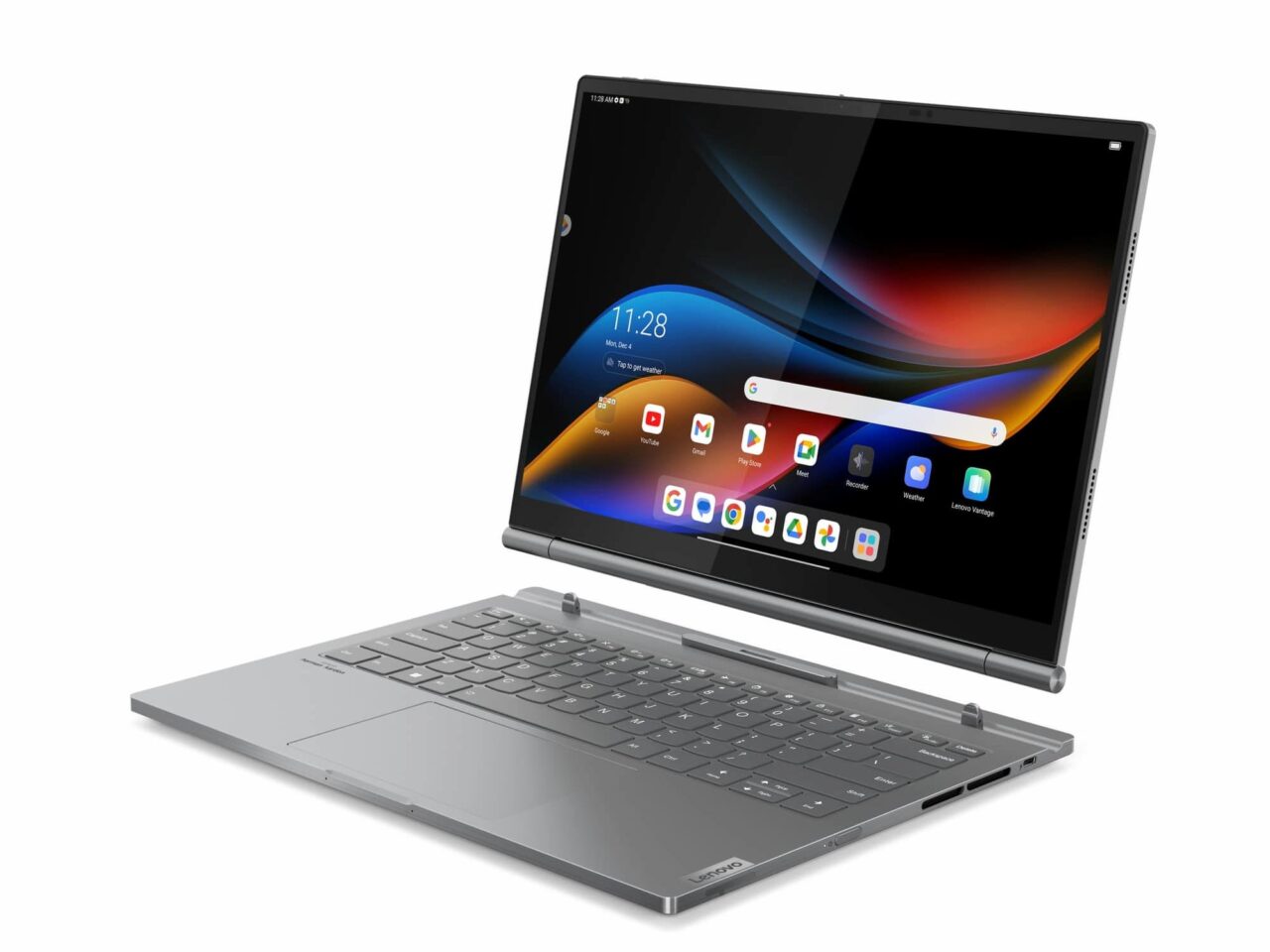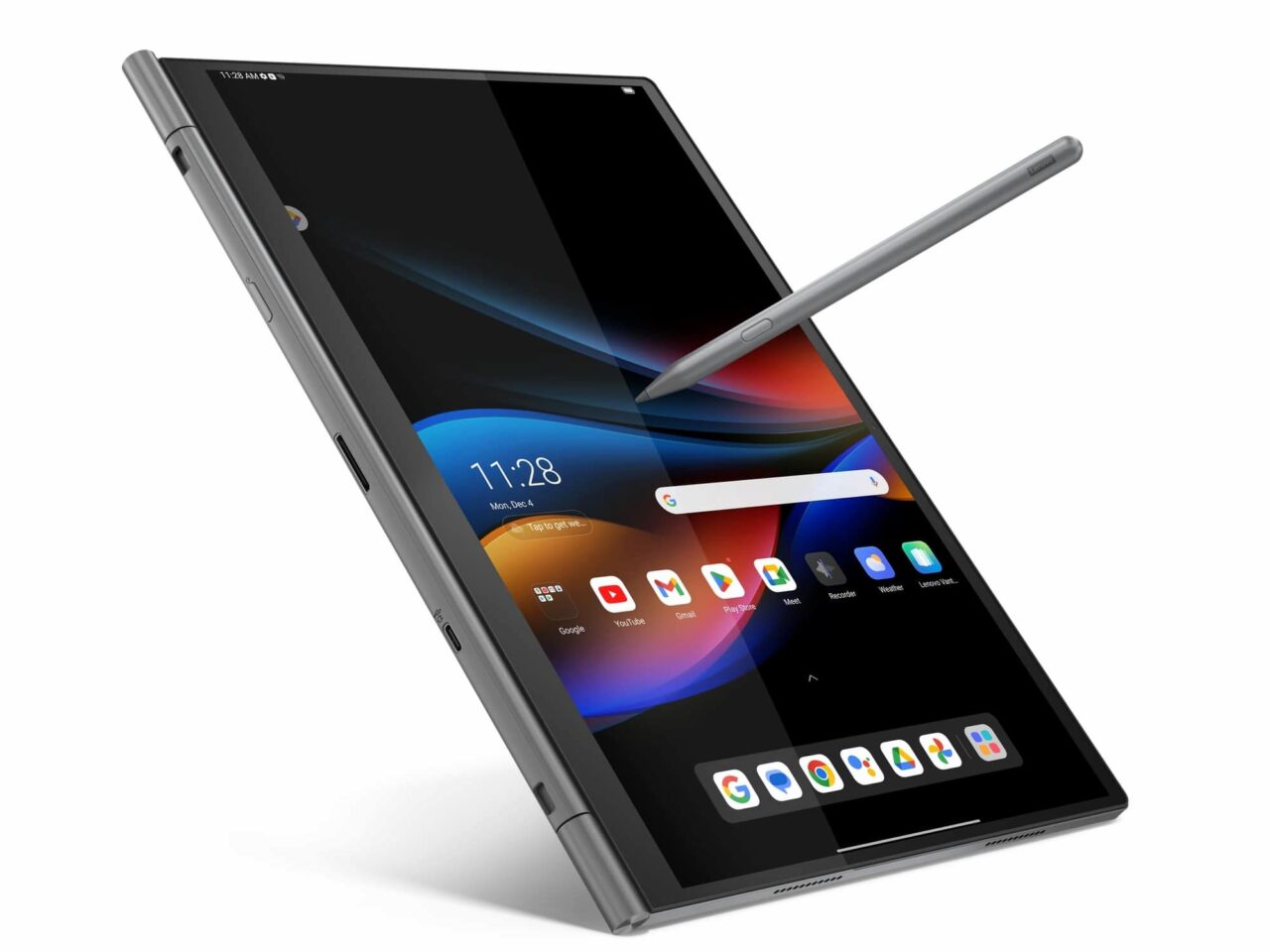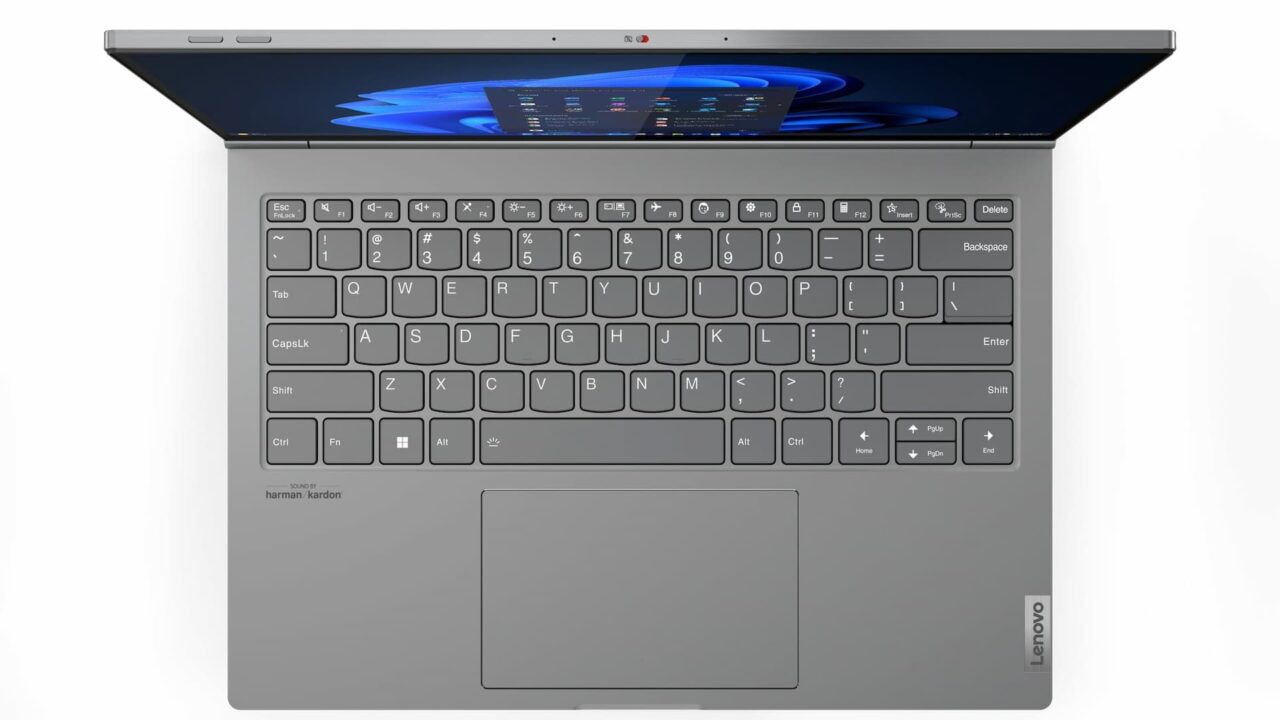Imagine a Chromebook that looks like any other ChromeOS laptop powered by a CPU. What if it had a removable display that was a standalone Android tablet? You’ll have to simply imagine it for now because this device doesn’t exist. However, the Lenovo ThinkBook Plus Gen 5 Hybrid is a Windows laptop version of this very concept.
Announced at CES 2024 this week, the Lenovo ThinkBook Plus Gen 5 Hybrid is a traditional Windows 11 laptop. The chassis houses an Intel Core Ultra 7 processor, 32 GB of memory, a 1 TB NVMe SSD and 75 WHr battery. A standard keyboard and trackpad are also present, as are a number of I/O ports. It looks like a laptop because it is. It’s just one with a detachable display that has its own internal hardware.

The 14-inch touch and pen capable 2.8K OLED screen is both your laptop display when attached and an Android 13 tablet when detached. Inside is a first-generation Qualcomm Snapdragon 8+ SOC, 12 GB of memory, and 256 GB of UFS storage capacity. Remove the screen from the laptop then and you have a very capable Android tablet.
Both the laptop base and the tablet have their own Wi-Fi 6E and Bluetooth 5.3 radios. So either can be connected to a network or wireless peripherals.
Each part has speakers as well. And the laptop cameras are actually part of the tablet. A pair of rear sensors (13 and 5 megapixel) are available for photos or videos, and the FHD front web cam is for video calls. The tablet also has its own 38 WHr battery.

Again, this is a Windows laptop. And by offering two complete devices in one, along with high end internals, this is a pricey beast. Lenovo says the ThinkBook Plus Gen 5 Hybrid will debut at $1,999 in the second quarter of 2024.
What I’d love to see is a Chromebook version from Lenovo, capably configured with a price in the $1,299 to $1,499 price range.
No I don’t think there would be a huge market for this in Chromebook form at this price. It could spur additional designs from other ChromeOS hardware partners though, giving some freshness to the Chromebook lineup.
Currently, the Windows part of this Lenovo laptop doesn’t “speak” to the Android part. Meaning that your data is separate between the two.
I’d like to see these components share data natively and it shouldn’t be a challenge if this were a ChromeOS and Android combination. In a worst case situation, you could use the Nearby Self Share feature in ChromeOS 120 to move data between the laptop and tablet.

A Chromebook edition of the Lenovo ThinkBook Plus Gen 5 Hybrid would offer Android apps in either mode. No you wouldn’t have a desktop-class browser on the tablet part. But most common use cases for tablets are centered around app usage and content consumption. Content creation could still be handled in either ChromeOS or Android when using this mythical laptop in a traditional manner.
While I doubt Lenovo will go this route, I’d still like to see them try it. Or perhaps there’s a refreshed HP Chromebook X2 that uses this concept. Again, the cost would have to come down by at least 25 to 30%, if not more.
Even then, the ChromeOS hybrid would only find a niche audience. Admittedly, I’d probably be in that audience and use this dynamic product to replace my current Chromebook and my iPad Pro.


10 Comments
What would be the benefit over a proper detachable Chromebook (without additional SoC running Android)? It’s just sad that Google’s internal product politics are preventing Chromebook tablets to reach their full potential…
More performance with an x86 chip in the base when in laptop mode, two devices that can effectively function well as one, separate battery life so when you’re done in laptop mode at the end of the day, you have a fully charged tablet, a vastly better keyboard when used on the lap, better Android performance on the tablet as it’s not running those apps in a container or VM. These are just a few off the top of my mind.
Totally agree. A ChromeOS device gets updates for 10 years. An Android device gets one or two. I want a smaller ChromeOS device for carry around convenience but would settle for a 10 inch device. Eight or nine inches would be preferred. I would toss the keyboard (maybe in the bottom drawer). I am tired of getting Android tablets tablets for them to still be useful but no longer getting updates
That’s the thing, I’d also love to have a proper detachable ChromeOS tablet with stable backlit keyboard base, high-res OLED display, x86, maybe even with additional battery in the display… The only difference is that the Android system and its apps are still better optimized for touch use case. If Google allowed ChromeOS to expand into Android’s tablet turf, maybe we wouldn’t need to run Android apps on the tablet at all. But i get why you’d want one as the things currently stand.
Is a “removable display” the same as a “detachable keyboard”???? So, it isn’t at all clear, but it seems that the Windows laptop’s 14″ screen is the main reason that the author likes it better than Chromebooks with detachable keyboards. Otherwise, these Chromebooks would seem to be alternatives:
* Lenovo Chromebook Duet 3
* ASUS Chromebook CM30
Not quite. The Duet 3 and CM30 keyboards are simply input accessories for typing, trackpad use and ports. The Lenovo hybrid just announced has a full standalone computer in the keyboard base, including connectivity, battery, etc… The Chromebooks you pointed out are simply tablets with an input accessory.
Got it. I didn’t catch that part about each half having its own, independent SoC. Still, pardon my saying so, but this Hybrid thing reminds me of a camel. It will be a novelty toy for a few folks who don’t care about the price tag. The ChromeOS approach to implementation of Android apps is at the other end of the spectrum: Seamlessness. The one thing that I do like about the Hybrid is the camera added to the outside of the case.
Google and Microsoft let Android and Windows to be use as any way possible by OEM’s but when it comes to ChromeOS, Google is very strict of the form factor and what hardware combination can be used.
I guarantee you, if ChromeOS was more open platform like Android (or any other Linux Distro) then you would have seen a ChromeOS version of this.
Personally I’d like to see something similar to a MS Surface with a proper base. The base would just be a good keyboard, trackpad, and additional battery. And the base could connect to the tablet via BT so that the display could be put at eye level.
Even a Duet 5 with this would suit me so long as they upgraded the processor.
I would love to see a Chromebook detachable like this. I believe it was HP was the last one who did such.
P.S. Seems like CES is coming to an end, and only Asus announced their new Chromebooks. No news from Lenovo, HP or Samsung. Quite sad to see fewer announcements for Chromebooks this year